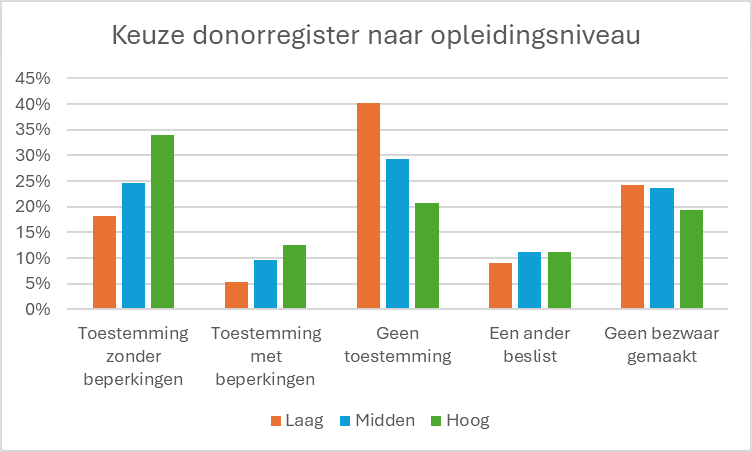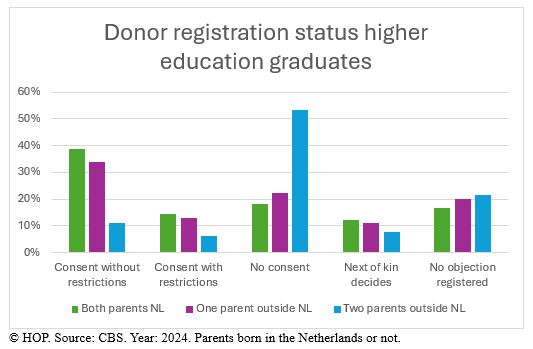Over 50 percent of them are donors in the Netherlands
University graduates more likely to be organ donors

When people die, tissues and organs such as the heart, kidneys and liver can sometimes be used to help people who are severely ill. But not everyone is willing to become a donor.
In the Dutch donor register, Dutch citizens can indicate whether or not they consent to organ donation. They can also choose to become donors with certain restrictions: some people don’t want to donate their eyes, for instance. Another option is to leave the choice to your next of kin.
To combat the shortage of donors, a new law has been in place since July 2020, establishing that those who don’t indicate their preferences in the donor register are registered as "no objection" by default. Since then, the percentage of adults using the donor register surged from 49 to 72 percent, according to Statistics Netherlands (CBS).
Education level
Organ donation is much more common among those with a university degree: 46 percent of this group consent to donating their organs, with or without restrictions. Only 21 percent of them register as objectors. For those with the lowest levels of education, the figures are almost reversed: only 23 percent give permission and 40 percent object.
People’s cultural background also plays an important role in this regard, CBS observes. 34 percent of people of Dutch origin (both parents born in the Netherlands) object to organ donation, against 64 percent of those with a migration background. This pattern persists regardless of education level: highly educated people whose parents were born outside the Netherlands are also less likely to be registered donors.

This could lead to donor shortages for migrant populations, according to CBS. “The chances of finding a matching organ that won’t be rejected by the body are highest if the organ comes from someone with the same background.”
Research
In the register, you can also agree to your organs potentially being used for scientific research into organ transplantation if they can’t be used for a patient. CBS doesn’t keep figures on this, but the donor register does. The vast majority of those who agree to donation are also happy to donate their organs to science: 4.5 million of them consent, while only 304,000 object.